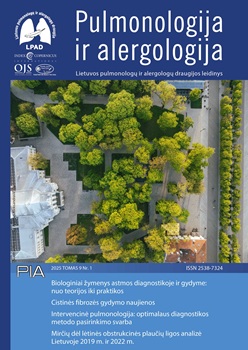CYSTIC FIBROSIS TREATMENT NEWS
Abstract
Cystic fibrosis (CF) is a rare, inherited, lifelong disease caused by pathogenic variants of the cystic fibrosis transmembrane conductance regulator (CFTR) gene. For a long time, CF treatment was focused on controlling symptoms and complications, and the prognosis was very poor. However, in 2012, the era of CFTR modulators began, which fundamentally changed the lives of CF patients. The first CFTR modulator, ivacaftor, significantly improved patient condition, pulmonaryfunction, quality of life, a notable reduction in sweat chloride concentration and exacerbations, and increased life expectancy. However, this drug was suitable for only a small group of patients. As research advanced and new data emerged, additional modulators such as lumacaftor and tezacaftor were developed. Combined with ivacaftor, these expanded treatment possibilities for a broader range of patients. The pursuit of better outcomes led to the development of the triple combination therapy elexacaftor/tezacaftor/ivacaftor, which dramatically changed the course of the disease and now benefits nearly 85% of individuals with CF. However, this progress also brought new challenges, such as adverse reactions, and issues with treatment adherence. Limitations of treatment – age limits, starting from which CFTR modulators can be used and the large number of tablets consumed. The most recent drug, approved in 2024, is vanzacaftor/tezacaftor/dutivacaftor – the first once-daily CFTR modulator. It is no less effective than the triple combination with elexacaftor, but offers greater convenience due to lower pill burden and reduced dosing frequency. Nevertheless, a key challenge remains: how to treat patients ineligible for CFTR modulators. Increasing attention is being given to gene therapy, which, although still in the clinical trial phase, is regarded as a promising future direction for CF treatment. This article provides an overview of the current evidence on CFTR modulators and gene therapy.


